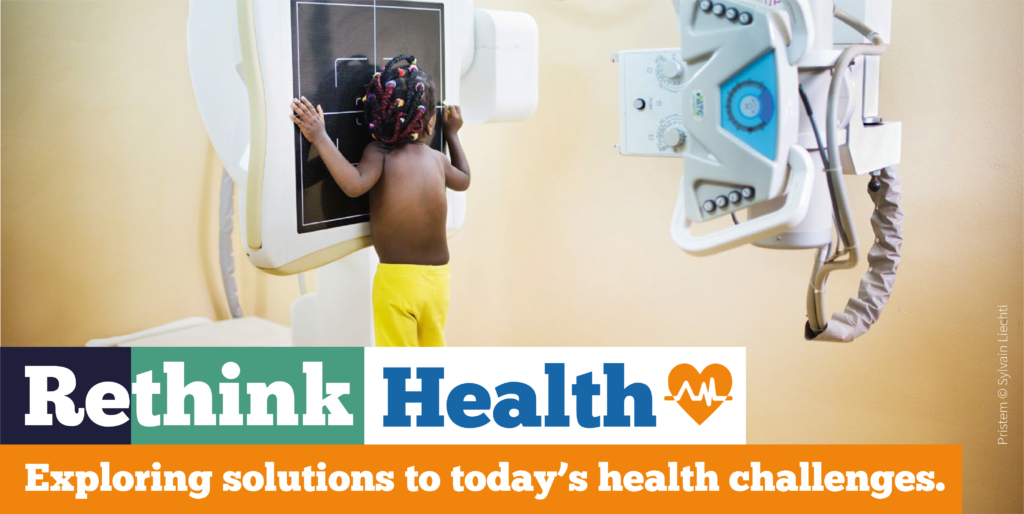
Exploring solutions to today’s health challenges: Noncommunicable diseases
As humanity has made important progress against infectious diseases, studies reveal that our way of life has become an even greater threat to our health. Stress, junk food, substance abuse, pollution, and endocrine disrupting chemicals have paved the way for the growth of noncommunicable diseases such as cancer, cardiovascular disease, respiratory disease, and diabetes. Noncommunicable diseases are now responsible for more than 70 percent of deaths globally, mostly among lower-income communities according to the World Health Organization. Even if medical research has traditionally focused more on curing disease than preventing it, we’re at the dawn of a more open-minded approach to medicine and health: researchers, scientists, individuals and organizations all over the world are working on new ways to prevent noncommunicable diseases. Discover four of them this week on #RethinkHealth.
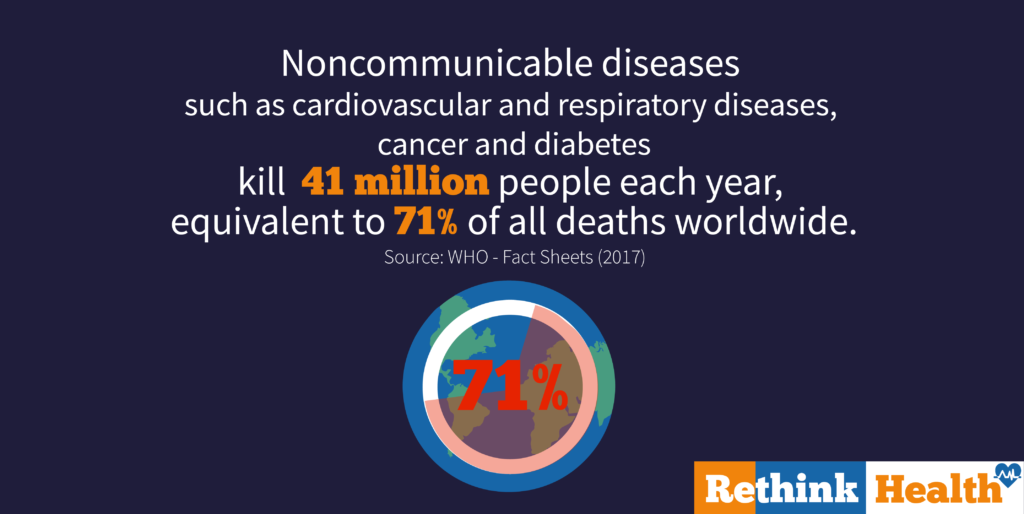
Over three weeks, Sparknews is proud to invite five leading newspapers from five different countries (Der Spiegel, El Pais, The Sunday Times, The Nation, and The Hindu) to explore stories of solutions that are having an impact on today’s most pressing healthcare challenges. This week’s articles featured solutions that prevent what’s preventable and live our fullest possible lives with what’s not.
Therapeutic fasting to prevent noncommunicable disease
Home of the world-renowned Buchinger method, Germany is one of the most popular destinations in the world for therapeutic fasting, a practice in vogue among the country’s citizens. Hundreds of studies point out the benefits of different fasting methods in terms of non-communicable diseases prevention, such as reducing the risk of chronic diseases and strokes, decreasing the risk of cancer and diabetes, tackling at the same time obesity, a growing health issue in Germany. However, there is conflicting evidence on the benefits of such diets and their long-term effects have not been thoroughly investigated. Do the benefits of these practices outweigh their harm? Read more in The Hindu.
Nanoclean nasofilter against NCDs related to air pollution
Air pollution is responsible for 6.5 million deaths per year worldwide and 9.8 percent of the total disease burden in India, the second leading risk factor in the country after child and maternal malnutrition. Leading cause of illnesses related to air pollution were non-communicable diseases like cardiovascular disease and respiratory infections. In order to prevent them, an IT-Delhi startup called Nanoclean Global designed a device called Nasofilter — a transparent, biodegradable, comfortable and affordable respiratory filter for nostrils that anyone can wear up to twelve hours. A pack of 10 filters sells for less than 100 rupees (USD 1.4). Launched only a few days before Delhi got blanketed with toxic smog last November, the devices nano-fiber based technology is the first of its kind to achieve more than 90% efficiency against PM 2.5 and 95% against PM 10. Within three days after its launch and in the middle of a pollution spike, the startup received thousands of inquiries from schools, hospitals, and companies from all over India. Read more in The Hindu, The Nation and in El Pais (in Spanish)
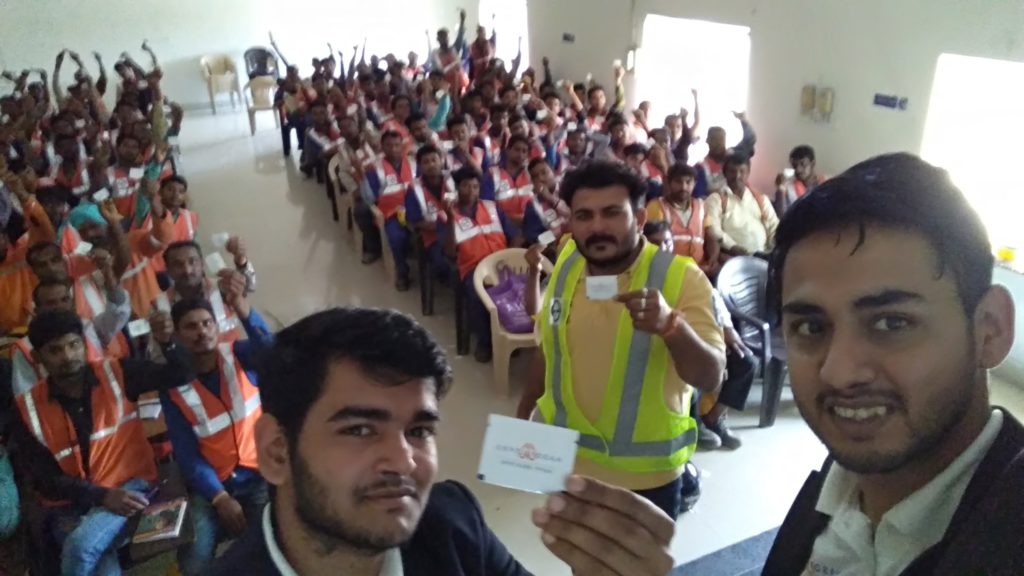
Sickle Cell Aid Foundation: awareness, medical education, and tests for all
More people are affected by sickle cell anemia in Nigeria than in any other country in the world. Yet awareness of the condition is limited among both the general population and the medical community, which, along with heavy stigma surrounding the illness complicates its diagnosis, prevention, and treatment. Increasing awareness on the disorder and ensuring that people living with this SCD have access to the quality health care they need, the Sickle Cell Aid Foundation has become one of the most influential sickle cell NGOs. The non-profit conducts regularly free genotype tests through campaigns across the country; provides counseling and carries out a drug delivery plan for those affected and send those who carry the trait regular reminders for check-ups. Read more in The Hindu and The Nation.
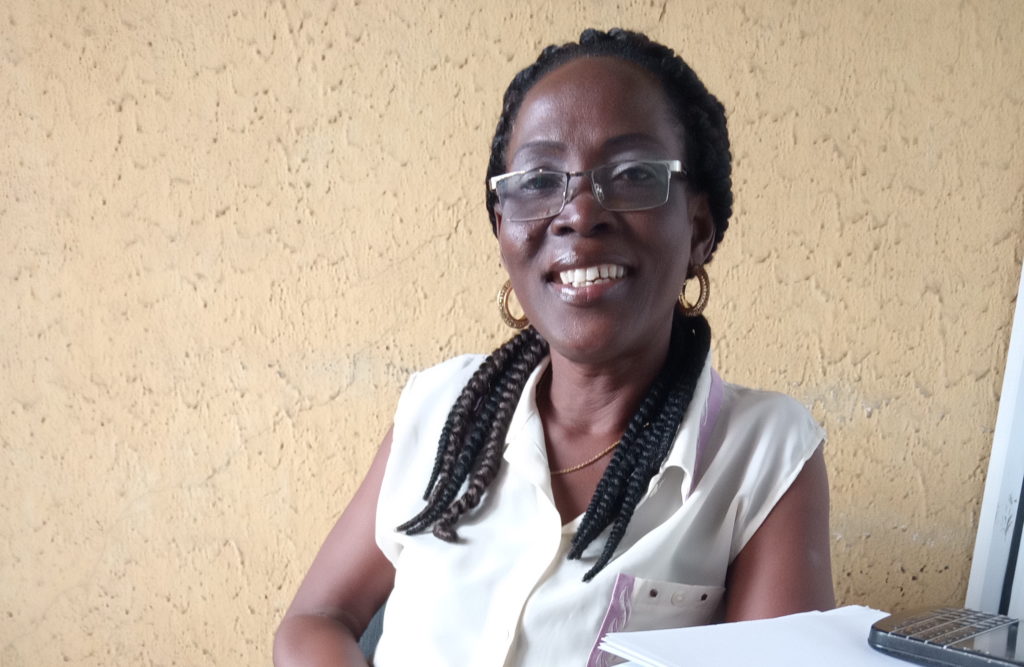
Could surgery solve obesity?
In South Africa, three out of 10 adults and 1.6 million children are obese: three times higher than the global average. This includes about 40% of women aged 15 to 49 years. The result is increased disease and death linked to obesity, including NCDs like diabetes and cardiovascular disease. Leading researcher and surgeon, Prof Tess van der Merwe has studied obesity for two decades. Her latest findings have resulted in the End Stigma campaign for World Obesity Day, because the science shows that obesity is a medical condition, not a lifestyle disease. Based on genetic and neurological science, she shares why diet and exercise may not be the solution for obesity, but urgent medical intervention. Bariatric surgery immediately reverses obesity. The state has now begun offering this option to those without medical insurance, and acclaimed surgeon Zach Koto is specialising in bariatric procedures at George Mukhari hospital in Pretoria. Could this be the answer to the obesity epidemic? Read more in The Hindu and The Nation

. Ce n’est pas vraiment un gros problème, car heureusement, vous êtes tombé sur cet article avant d’acheter l’un de ces suppléments naturels contre la dysfonction érectile en EDMedef.com . Il y a certains aspects de toute alternative naturelle que vous pouvez examiner avant de décider laquelle acheter.
Op-ed by Katie Dain, CEO of the NCD Alliance — How can we prevent noncommunicable diseases from spreading?
Noncommunicable diseases have grown to an epidemics proportion in the last decades. How can we prevent them from spreading even more, or even bend the curve? Katie Dain, CEO of the international NCD Alliance, which unites 2000 civil society organizations in more than 170 countries, dedicated to fighting noncommunicable diseases, will explore the possible actions that need to be taken to prevent NCDs from spreading even more, as well as those that are already working worldwide. Read more in The Hindu.
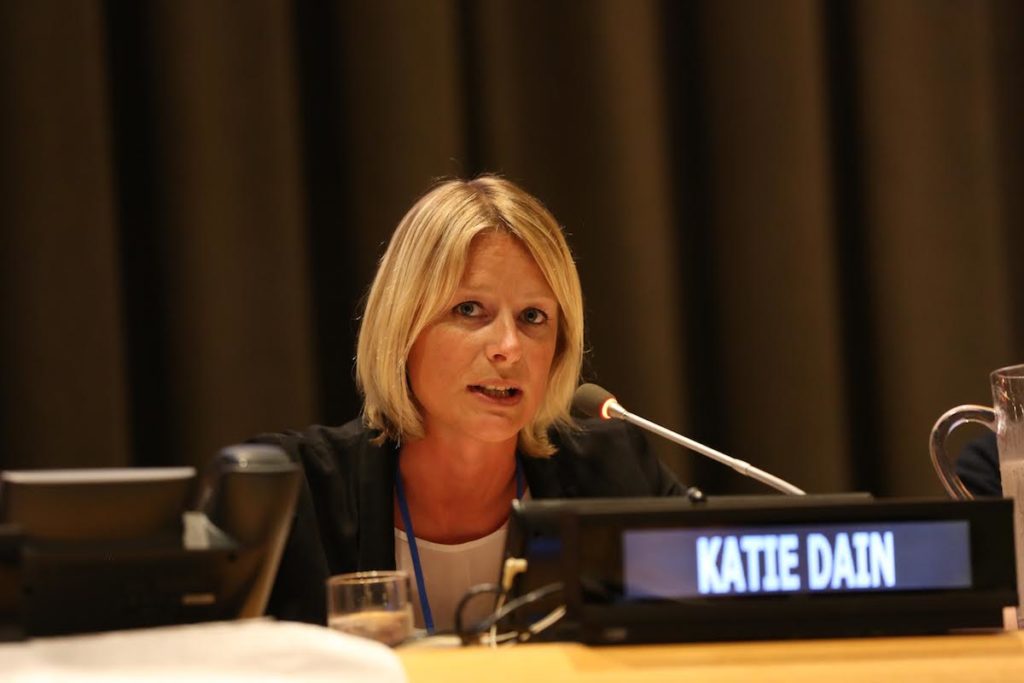
Discover 5 stories of change on access to health. You can be a part of the solution — reading and sharing these stories so that they reach every corner of the globe. Let’s rethink health together.




